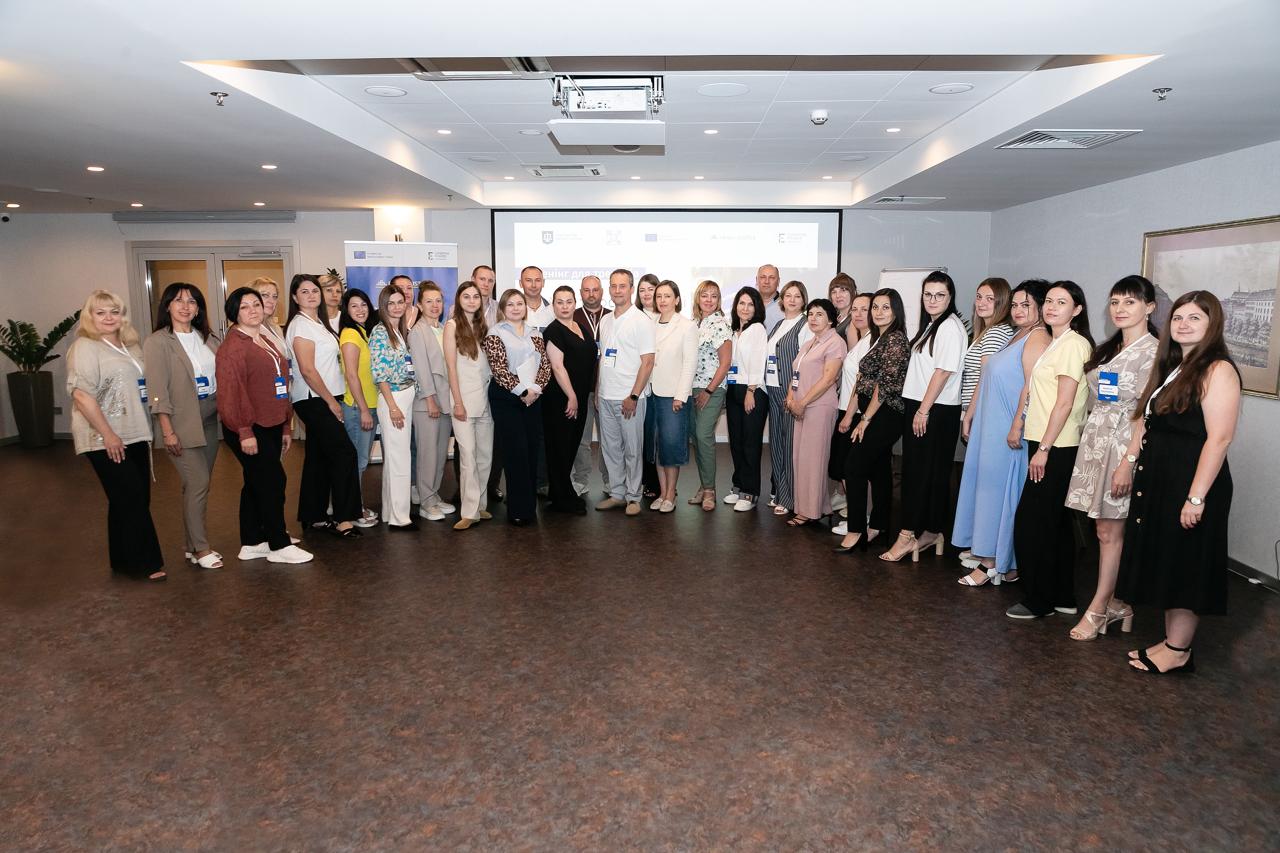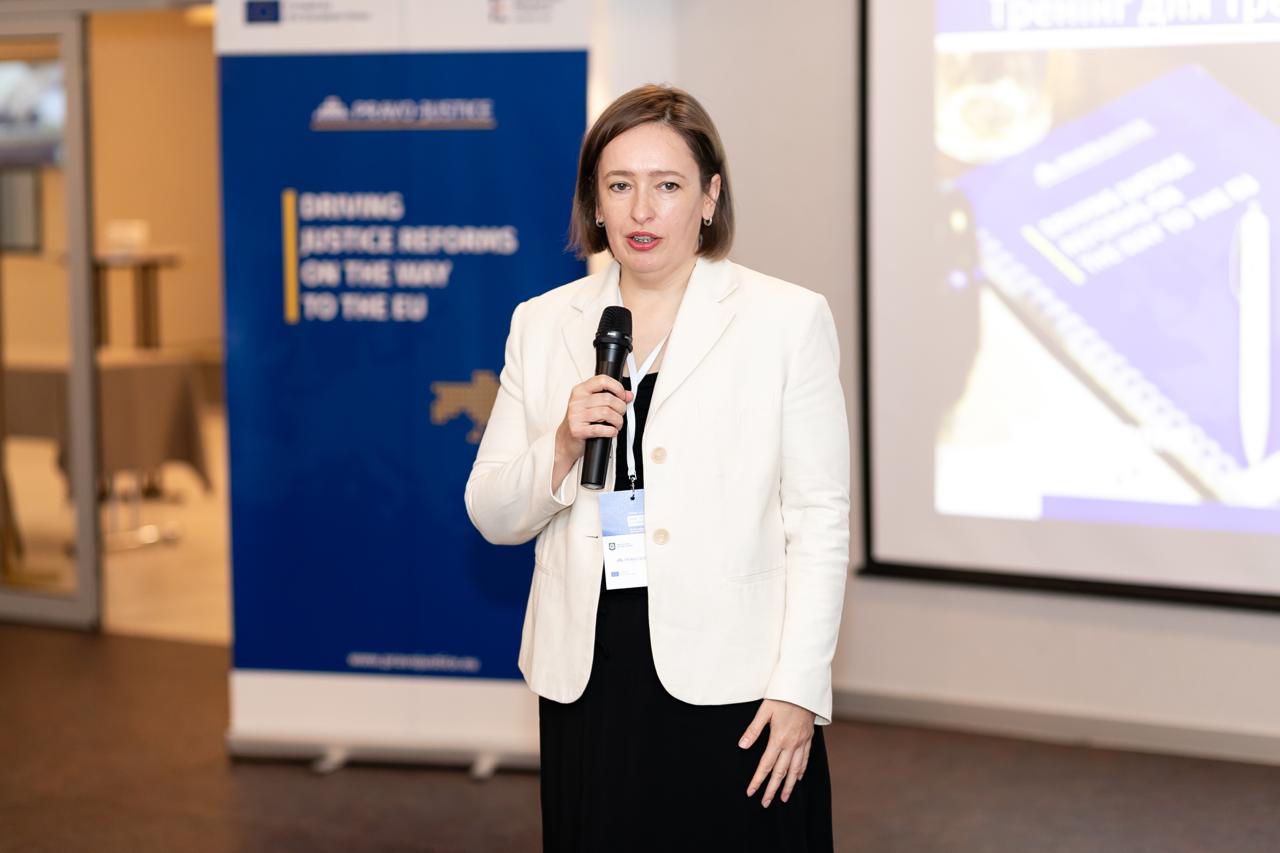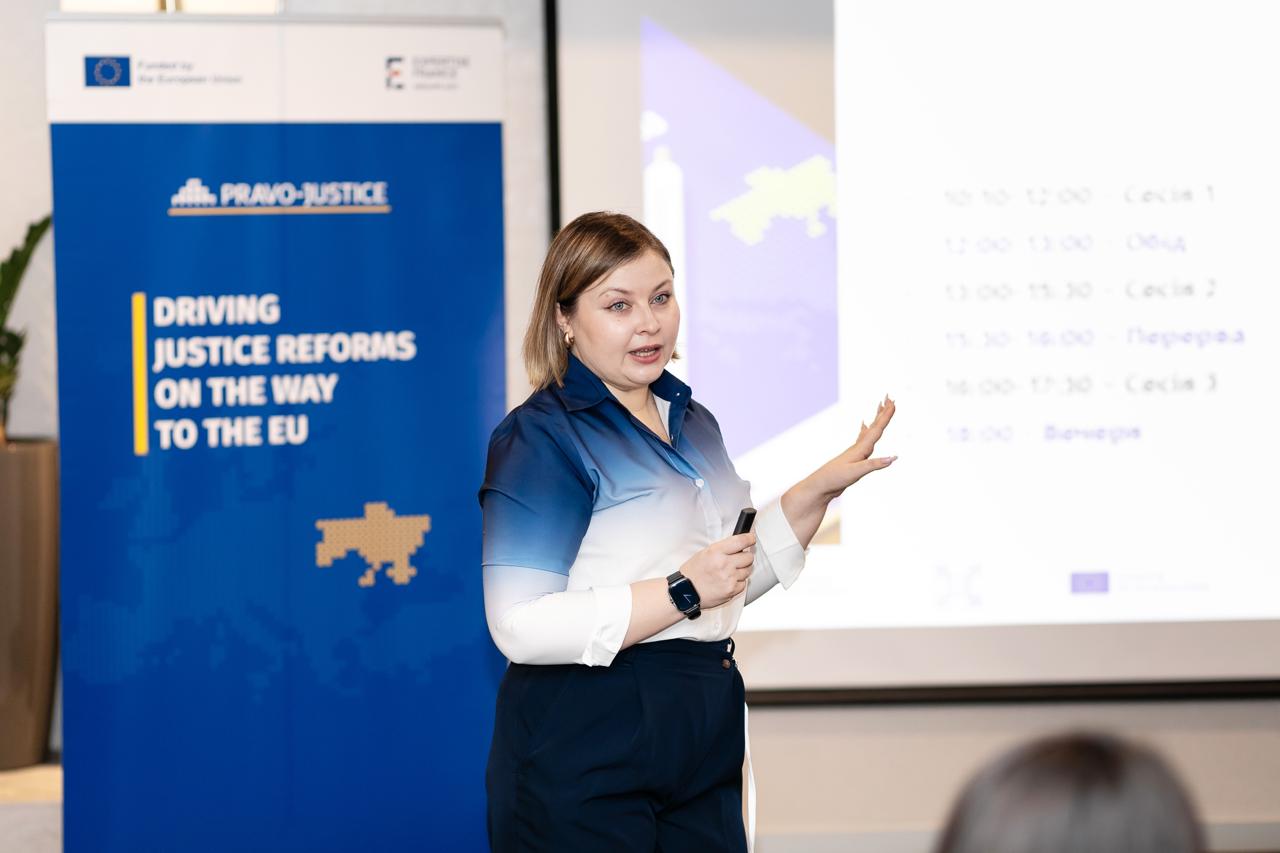EU Project Pravo-Justice Held Training for Probation Mentors on How to Use a New Risk Assessment Tool for Criminal Offences

On 12–13 August, a training session entitled ‘FRAME and how to use it’ was held in Lviv. The session was organised on the initiative and with the expert support of EU Project Pravo-Justice. Over 30 trainers and mentors from Probation in Ukraine, representing all regions of the country, took part in the event. Its main objective was to help attendees develop practical skills required to conduct a unified reoffending risk assessment (FRAME). This tool makes it possible to accurately predict the likelihood of reoffending, taking into account both risk factors and the individual's motivation to change.
Olena Kochura, Key Expert on Reforming the Penitentiary System and Probation at EU Project Pravo-Justice, and Khrystyna Anufriieva, Head of the Department of Social and Educational Work with Probationers, Probation Programs, and Cooperation with Volunteers at Probation Centre conducted the training.

“EU Project Pravo-Justice has been cooperating with the Probation Service since its establishment and has been involved in the entire process, from developing and validating to analysing the application of the reoffending risk assessment tool, one of the key tools in probation work. The new unified assessment is the outcome of years of research, rethinking and validation of the tool based on empirical data. We will further support activities designed to introduce this tool to probation staff and ensure its effective use," said Iryna Zharonkina, Enforcement and Protection of Property Rights Component Lead at EU Project Pravo-Justice.

Olena Kochura, Key Expert on Reforming the Penitentiary System and Probation at EU Project Pravo-Justice, emphasised that the new methodology addresses key problems encountered in earlier approaches.
"Previously, the outcomes of the short and full versions of the risk assessment often differed. It affected the quality of pre-trial reports and the quality of social and educational work with probation clients. The unified assessment, however, takes into account Ukrainian and international experience, validation results, and current circumstances, including the impact of full-scale war. It is more automated, combines statistical data on criminal history with dynamic risk factors, and identifies a single risk level. Importantly, the tool takes into account not only risks, but also perception factors, individuals' strengths, and their motivation to change," the expert noted.
In her opinion, participants spent two days learning about the FRAME methodology, practising real-life scenarios, and consolidating newly acquired knowledge. Oleh Yanchuk, Director of the Probation Centre, noted that FRAME is not only a tool, but also a new philosophy for the work of the Probation Service.
"FRAME is the culmination of a decade of national practice, international experience and expert research. It not only helps identify crime-related needs, but also changes approaches to the execution of community sentences. Thanks to integration with the Unified Register of Convicts and Prisoners, assessments become more objective and protect staff from mistakes. However, the most important factor is having trained and motivated staff who can effectively use FRAME to reduce the risk of reoffending and promote social rehabilitation for clients," said Oleh Yanchuk.
The training participants emphasised the practical value of the knowledge they gained and thanked the trainers for their professional support and belief in achieving a common goal. The attendees noted that the event was not merely a platform for learning, but also a source of inspiration that gave them impetus to introduce modern approaches in probation work and strengthen its role in preventing recidivism.
Starting in September, mentor-trainers, guided by experts from EU Project Pravo-Justice, will launch training activities for their colleagues in the regions, ensuring that FRAME is applied in the daily work of the Probation Service.